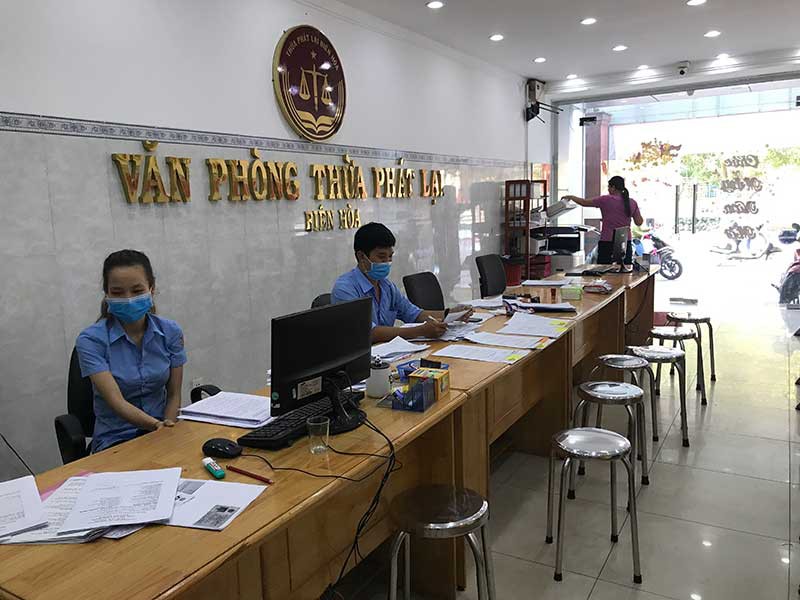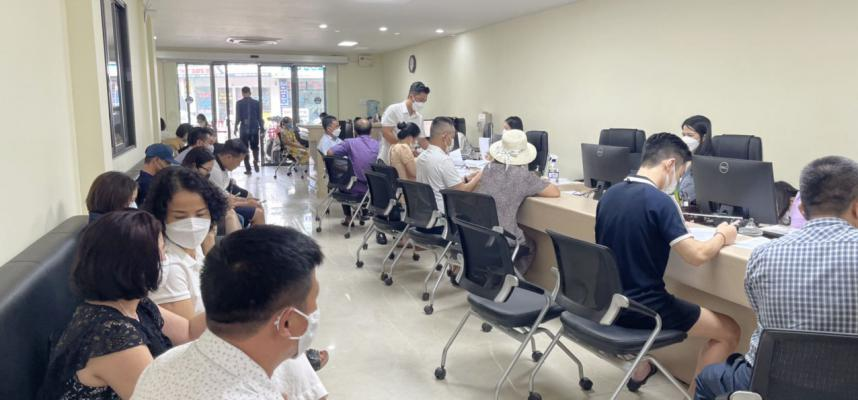What is a Bailiff in Vietnam?
The Bailiff is a rather abstract concept and can be confusing for the listener, thus being less common in everyday life. Questions arise such as: What is a Bailiff? Who is the Bailiff? And what tasks will the Bailiff perform?
During the French colonial period, the position of bailiff already existed. The Vietnamese term "thừa phát lại" originates from Sino-Vietnamese: "thừa" means authorization or acting on behalf of, and "phát" means to deliver or to send out, implying the duties of a person executing a command from an authority.
According to the provisions of Decree 61/2009/ND-CP, "Bailiff" is understood as a person appointed by the State to handle civil enforcement, serve documents, draw up minutes, and other tasks as defined by the Decree and related laws.
Bailiffs can be considered as a legal profession similar to Lawyers, Prosecutors, Notaries, etc., and operate under the form of private businesses or partnerships, each having its own name. For example: Thinh Phat Bailiff Office, Binh Thanh District Bailiff Office.
Bailiff offices operate based on financial autonomy and provide legal services of a public nature, performing tasks such as:
- Serving documents at the request of the Court or Civil Enforcement Agency;
- Drafting minutes at the request of individuals, agencies, organizations;
- Verifying conditions for enforcement upon the request of parties involved;
- Directly organizing the enforcement of court judgments and decisions upon the request of the parties involved. Bailiffs do not organize the enforcement of judgments and decisions within the jurisdiction of the Head of the Civil Enforcement Agency to proactively issue enforcement decisions.
In addition to the above tasks, bailiffs are also limited by certain prohibitions:
- Not disclosing information about their work, except as allowed by law.
- Bailiffs are not allowed to demand any material benefits other than the costs stipulated in the contract.
- While performing their duties, bailiffs are prohibited from taking on matters related to the rights and interests of themselves or their relatives, including: Spouse, biological children, adopted children; biological parents, adoptive parents, grandparents, uncles, aunts, siblings, of the Bailiff or their spouse; nieces and nephews of the Bailiff where the Bailiff is their grandparent, uncle, or aunt.
- Other prohibitions as regulated by law.
Based on the functions and duties of bailiffs, a common task of bailiffs is drafting minutes. This concept may be quite ambiguous, but it can be imagined as similar to notarization or certification activities.
Suppose someone requests to witness a civil transaction, such as receiving a deposit. In case of a dispute, the dispute resolution body summons you as a witness, where your job is to describe what you witnessed either verbally or in writing. However, the dispute resolution body will verify and cross-check your testimony for accuracy and truthfulness. Similarly, a bailiff will perform the same task but can do so in writing, video recording, photography, and audio recording at the time of the transaction, and the recorded results will serve as evidence in case of a dispute.
According to Clause 2, Article 2 of Decree No. 61/2009/ND-CP, "Minutes are documents drafted by a bailiff, recording events and actions used as evidence in court and other legal relationships." And, according to Article 7 of Joint Circular No. 09/2014/TTLT-BTP-TANDTC-VKSNDTC-BTC, "Minutes drafted by a bailiff are a source of evidence for the Court to consider when resolving a case and a basis for carrying out legal transactions according to law."
Thus, minutes are a written document with attached images, videos, and audio (if necessary). In this document, the bailiff will descriptively and truthfully record the actions and events they directly witnessed. This document serves as evidence in court if disputes related to the recorded events or actions arise.
There are two basic types of minutes: Minutes recording events/actions and Minutes recording the status quo.
Example 1: Mr. A wants to deposit a sum of money to Mr. B to ensure that both parties enter into a purchase agreement. To ensure legal safety and avoid risks, Mr. A can go to the Bailiff's Office for consultation on drafting minutes related to the deposit transaction between the two parties. This minute is registered with the Department of Justice within 3 days from the date of drafting.
Example 2: Ms. C has a house she wants to lease to Company D for storage but both Ms. C and Company D do not want disputes over the condition of the house and its furnishings to arise upon contract termination. Therefore, Ms. C can go to the Bailiff Office for consultation on drafting minutes to record the status of the house before Company D moves in.
Thus, a bailiff plays a very important function that effectively supports judicial activities, contributing to the completion of our legal system.
Related Documents:
Decree 135/2013/ND-CP on the pilot organization of Bailiff activities in Ho Chi Minh City
- Key word:
- bailiff
- bailiff in Vietnam
- Bailiff Office
- Ministry of Health's response to the petition regarding overload condition at central-level hospitals in Vietnam
- Regulations on Study Time for Primary School Students in Ho Chi Minh City for the 2024-2025 School Year
- State Policy on Road Traffic Order and Safety from 2025
- Regulations on the System of National Defense Industrial Bases
- Subjects and Conditions Eligible for Amnesty in 2024
- Ho Chi Minh City: Guidance on the Implementation of the 2024-2025 School Year Program for Primary Education
-

- Appraisal fee for establishing a Bailiff's offices ...
- 19:42, 11/07/2024
-

- Fines for Violations in the Activities of Bailiffs ...
- 13:06, 10/07/2024
-

- Entitlement to organize judgment enforcement of ...
- 09:07, 07/10/2023
-

- Criteria for establishment of a bailiff office ...
- 18:08, 16/09/2023
-

- Administrative sanctions for violation against ...
- 17:08, 13/07/2023
-

- Ministry of Health's response to the petition ...
- 10:00, 01/09/2024
-

- Regulations on Study Time for Primary School Students ...
- 09:00, 01/09/2024
-

- State Policy on Road Traffic Order and Safety ...
- 08:00, 01/09/2024
-

- Regulations on the Effectiveness of the Latest ...
- 18:30, 31/08/2024
-

- Regulations on the System of National Defense ...
- 18:00, 31/08/2024
 Article table of contents
Article table of contents
